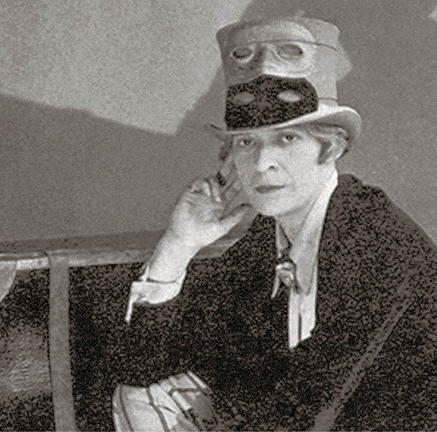A Place in the World: Janet Flanner

It’s Women’s History Month! So let’s give a cheer for the daring dykes who came before us and insisted on having their place in the world so that we could have our place in the world, too.
In 20th century America, journalism afforded a few determined—or lucky—women a place in the exciting, modernizing world taking shape early in the century. Among the handful of women who found a spot in American journalism’s pantheon of sharp, insightful, or witty writers, Janet Flanner snagged what might be considered the best gig a journalist could ever have: writing a regular feature from Paris for one of America’s premier publications, the New Yorker magazine.
How did Flanner, a middle-class girl from Indianapolis who dropped out of the University of Chicago out of disinterest in academics in favor of the city’s nightlife, snag this plum assignment?
That’s where luck, talent, and lesbian fate came in.
Returning to Indianapolis after leaving Chicago in 1914, Flanner landed a spot as a film critic on the Indianapolis Star newspaper. Though living in that small city, she maintained correspondence with her pals still in Chicago, among them William Lane Rehm. In 1918, to the surprise of all who knew her, including her family, Flanner married Rehm, and the two immediately headed for New York City, where they took an apartment in Greenwich Village.
New York and especially the Village, on the cusp of the Jazz Age, was becoming THE place to be for the young artsy set. Flanner, though married, insisted on living as independently as possible. Rehm, to his credit and his own need for independence, was supportive. Flanner was thus free to hobnob with the leading creative lights of the time, among them Harold Ross, who would go on to found the New Yorker in 1925.
Only months after her marriage to Rehm and their arrival in New York, fate jumped into Janet Flanner’s life in the person of Solita Solano, recently named drama critic for the New York Herald Tribune. According to various sources who knew both women, the two almost immediately fell in love.
Because Flanner was still married, and because of the prevailing strictures on lesbianism and same-sex relations, even in free-wheeling Greenwich Village Flanner and Solano couldn’t live the life they wanted for themselves. But in 1921, fate intervened again: Solano was offered an assignment by the National Geographic magazine to write articles from Greece.
The couple jumped at the chance.
Now in Europe, Flanner and Solano eventually settled among the avant-garde set on the Left Bank of Paris. The couple became part of the lesbian circle of Gertrude Stein and Alice B. Toklas, Djuana Barnes, and Natalie Barney, as well as palling around with the literati set of F. Scott and Zelda Fitzgerald and Ernest Hemingway. The creative atmosphere was ripe for Flanner to write her only novel, The Cubicle City.
Meanwhile, back in New York, Harold Ross was organizing his seminal publication of literature and wit, the New Yorker. With the first issue planned to debut in February 1925, Ross wanted to round out his roster of contributors with a bi-weekly feature articulating the social, cultural, and political currents in Europe. Friends since their early Greenwich Village days, Ross reached out to Flanner to write what became the “Letter From Paris.” And thus, one of the great American literary essays came to be.
Flanner, using the pen name Gênet, continued to write the “Letter From Paris” for the next 50 years, writing the essays from her home in that city, with a break during World War Two while Paris was under Nazi Occupation. She returned to Paris in 1944 to cover the city’s liberation.
While Flanner’s literary life was now stable, her personal life was anything but. She divorced Rehm in 1926. Both she and Solano had affairs with other women. For Flanner, her most serious affairs were with singer Nöel Haskins Murphy and later, with Natalia Danesi Murray. Like her relationship with Solano, Flanner’s liaisons with Murphy and Murray weren’t monogamous, and the foursome remained friends over many years.
Back in the United States, Flanner’s mother’s health deteriorated. Flanner travelled back and forth from Paris to the US to see to her mother’s care, while still writing her essays for the New Yorker and other publications.
Though her mother died in 1947, Flanner continued to commute between America and Paris to pursue various journalism assignments. The furious pace and constant travel eventually affected her own health, and by 1975 she was completely worn out. Solano and Murphy, no longer young themselves, were unable to care for their mutual lover. Flanner moved back to New York permanently, where she lived out her remaining years cared for by Natalia Danesi Murray.
Flanner’s life, like her prose, was lively, unpredictable, and full of wit. The lesbian literary legacy is the better for it. ▼
Ann Aptaker is the author of short stories and the Lambda & Goldie award winning Cantor Gold series Murder and Gold. The latest in the series, Hunting Gold, was released in July 2022.
